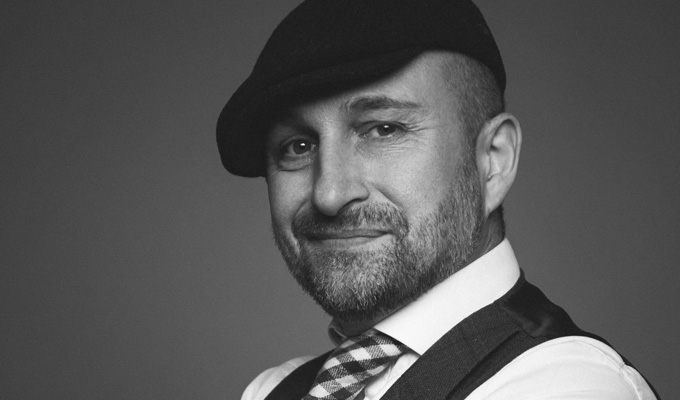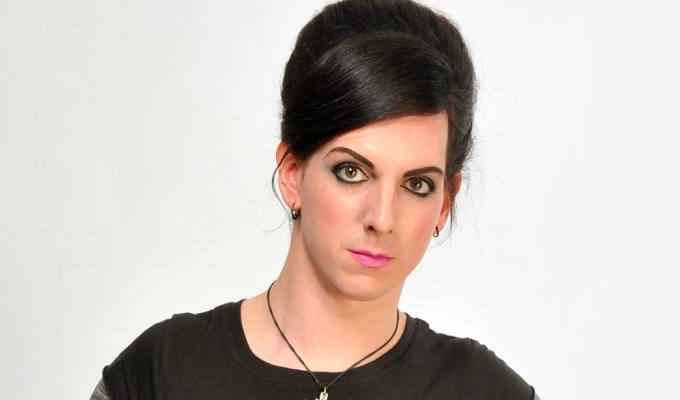
Creativity is kryptonite for depression
Mat Ricardo's monthly dispatch from the variety circuit
I'm sitting on my local beach as I write this. Notebook on my knee, flat white in a cardboard cup wedged into the sand by my hip. Getting a little fresh air, some sunlight, watching dogs fetch tennis balls from the shallows and kids faceplanting off hoverboards are all things that soothe me when I'm having a down day. Oh, and writing.
I first knew that I suffered from, well, something, when I was at school. Some days I knew I would have to vanish from my classes. There was a stairwell around the corner from the nurses office that led to a long-closed storeroom. Nobody ever went there, so I knew I could sneak up there and sit on the stairs undisturbed. I'd watch the time tick by, staring numbly into middle-distance and on-and-off crying, as I wondered what the hell was going on in my head, and what I was actually so damn sad about.
It took decades to pass before I could affix the labels of general anxiety and bipolar disorder to my confused emotional careening, but once I had, it seemed a little more likely these things could be dealt with. Therapy, a cocktail of supplements, understanding loved ones, and a slowly growing knowledge of how my behavioural patterns can tweak brain chemistry, and visa-versa, all became valuable tools in the emotional first aid box. As any horror movie starlet will tell you – it's much easier to be scared of something when you don't know what it is.
I still have days when I wake up and find the black dog sitting heavy and immovable on my chest, growling dark and destructive suggestions in my ear, and sometimes I'm weak enough to consider, if even for a fleeting moment, his ideas. But so far I've always managed to scratch him behind the ear until he falls asleep, or pick him up and throw him out the window. Sometimes it just takes a few days to do it.
But I'm not here to talk about my own emotional malarkey (Hope these medical terms aren't losing you). The thing is, the more open and public I've been in talking about this stuff in recent years (and my god, the black dog really hates it when you show you're not ashamed of him by talking about it), the more people in my life have confessed to suffering similar pain.
All it takes is one person to admit their struggles, and they're so often joined by an avalanche of mental health fist bumps, an ‘I'm Spartacus" of depression. With this kind of stuff, there's often no easy solution or treatment, but knowing you're not alone, and that others you love and admire go through the same shit, drives home the reality that you're not an odd outlier, but that, in fact, a lot of people live like this.
Which got me thinking. There's an often repeated idea that creative types – performers, artists, makers – are perhaps more likely to suffer from mental health issues than people deemed to be in less creative roles. I'm not sure about this, but I can see the thoughts that underpin it. As ex-cabaret star and current West-End theatre ass-kicker Joanna Woodward told me: ‘I think, as performers who are trained to feel and express emotion openly we can, therefore, be more susceptible to all emotion, good or bad. But the performance can also be our therapy.’
Undoubtedly true, but perhaps its something that affects those whose emotions are more volatile and sensitive, regardless of vocation? I certainly wasn't a performer when it became a part of my life, and as sure as there are accountants and telephone sanitisers who find themselves struck useless by the dog, there are just as many creative types who bounce through life with a cheery smile, untouched by self-doubt and dragging darkness.
It's perhaps a case that some people have thinner skin, which allows them to feel with a little more sensitivity and empathy – in, somehow, a slightly higher definition – but also leaves them open to being bruised more easily, more likely to second guess themselves, to convince themselves of their worthlessness. Their thin skin lets them be a better performer, artist, plumber or chef because they truly care, but alongside that comes self-doubt, sadness, and a crushing sense of ‘Oh, what’s the point’ when things don't go precisely their way.
Or maybe it's just a bunch of chemicals fizzing around in your brain, and sure, you can occasionally nudge the pinball machine of your psyche hard to one side and make everything jump momentarily in one direction, but usually it's just too damn complicated, with too many bells and lights and bumpers, to really get a handle on what, exactly, is making the silver ball do what and when.
I once had, what in the 1980s would have been called ‘a little nervous breakdown’, while in a small town in Germany. And take it from me kids: a small town in Germany is not the ideal place to have a nervous breakdown.
For the best part of a week, I sat for pretty much most of the day, on my bed in my little performers’ apartment, and stared out of the window crying – exactly as I had sat on the hidden stairwell back at school, 25 years earlier.
Except for 20 minutes every night, when I'd go downstairs to the theatre, and do my spot. And I'd be smiling, laughing, improvising. None of it fake. All real joy and fun. Until I came off stage, and the dog would be waiting in the wings for me. The dog hates you doing what you love. Your passion is black dog kryptonite. It tries to strip you of self-belief, of enthusiasm, of ideas, of the desire to make, because it wants you not to bother with any of that, perhaps not bother even with being alive.
I have Lego on my desk, so when I'm unable to make anything useful, I can at least make something useless. It's still making.
Published: 5 Jul 2016






